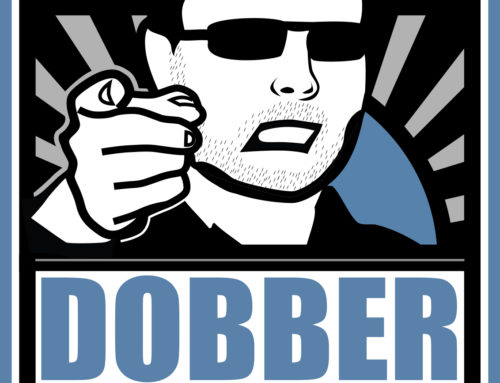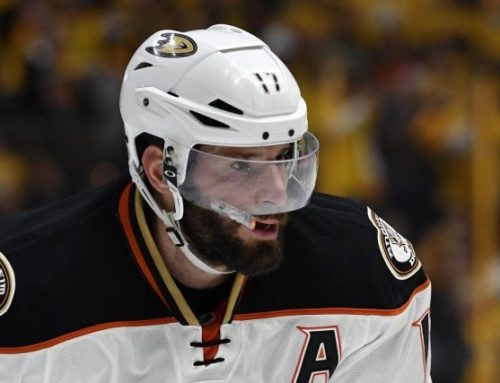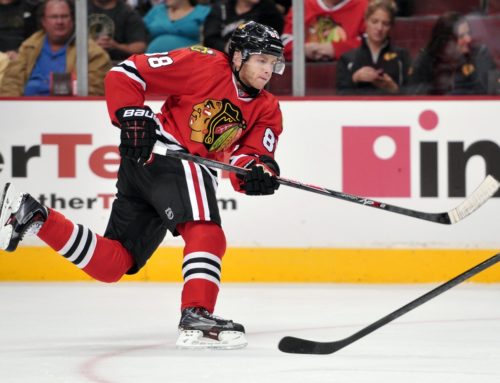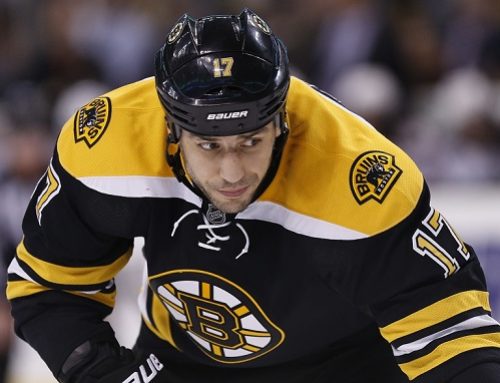
In the first two parts of the Business of Fantasy Hockey series, my co-author for this article series (Mike Colligan) and I have focused on the business principles of Value Investing (Part I) and Intrinsic Value (Part II). In today's instalment, we focus on further defining the meaning of Intrinsic Value and how it relates to fantasy hockey, and specifically how to correctly value players. The topic is the Psychology of Crowds, and I guarantee you will come away a smarter fantasy hockey poolie after reading this.
Part I defined the term of value investing as "the strategy of selecting stocks that trade for less than their intrinsic values. Value investors actively seek stocks of companies that they believe the market has undervalued. They believe the market overreacts to good and bad news, resulting in stock price movements that do not correspond with the company’s long-term fundamentals. The result is an opportunity for value investors to profit by buying when the price is deflated."
In Part II, we focused on the first half of that definition and described how a poolie would go about processing intrinsic valuation and applying it to fantasy hockey. Without an understanding and a good read on a player's intrinsic value, it's impossible to recognize if a player is undervalued or overvalued by the market (your league).
This week's instalment will focus on the second half of the definition, specifically investigating why the market overreacts to good and bad news in fantasy hockey which results in market price movements that do not correspond with a player's long-term fundamental value (intrinsic value). This creates the classic buy-low or sell-high opportunities that can separate your team from the pack if you’re able to successfully identify them.
Today's Topic: Psychology of Crowds
One of the most famous and wealthy advocates of value investing in the business world is Warren Buffett. As the CEO of Berkshire Hathaway, he's made his billions by applying the value investing ideas we've discussed to perfection. But while Buffett gets the attention and notoriety, he credits much of his success to his partner Charlie Munger. Today we'll be using a piece written by Munger to demonstrate and explain why people act irrationally, and it is very applicable to fantasy hockey.
In 1995, Munger gave a speech at Harvard Law School entitled "The Psychology of Human Misjudgement". In the years following the speech, he adapted the piece into a lengthier written version which you can download and read here.
In the speech, Munger lists 25 human tendencies that often mislead people and cause errors in judgment. For the sake of time and space, we've chosen four of these tendencies that may specifically cause other league members to undervalue or overvalue players. Keep in mind, it's not only important to be aware of these tendencies to spot fantasy hockey opportunities, but it's good to be conscious of them to minimize the negative impact it can have on your own team. If you make the same mistakes, you're just another one of the "crowd".
Liking/Loving Tendency
In Part I of our series, we discussed the dangers of overvaluing hometown guys or players from your favourite team through our example on Kris Versteeg. Munger’s first tendency explains the dangers of liking a particular player too much.
One very practical consequence of Liking/Loving Tendency is that it acts as a conditioning device that makes the liker or lover tend:
1) to ignore faults of the object of his affection,
2) to favor people merely associated with the object of his affection and
3) to distort other facts to facilitate love.
The first and third points are fairly self-explanatory. It’s good to use your intense knowledge of a team or player to your advantage when determining intrinsic value characteristics, but always be sure to remove any biases (easier said than done, though). Don’t let your love for a player blind you to obvious intrinsic valuation faults. We’ve seen this occur in nearly every fantasy hockey league we’ve participated in over the years. It is also why I tend to avoid drafting or trading for Vancouver Canucks. Sometimes as a Vancouverite my bias negatively impacts my ability to properly value these players. Being self-aware of your own biases is only the first step, but it is an important one.
The second point is also very applicable to fantasy hockey. Many poolies overvalue players pegged to line up alongside some of the NHL superstars like Sidney Crosby, Alex Ovechkin, and Ilya Kovalchuk. However, keep in mind that with many of these complementary players, their value lives and dies with their ability to leech off the greatness of that one superstar. Any hiccup, injury, or line change throughout the season could render the player useless in your hockey pool.
This theory also works in the opposite direction. Most people have a team or player they just can’t stand, and you’ll often notice the Disliking/Hating Tendency creates opportunity to acquire players that have been irrationally shunned by fellow owners.
Inconsistency-Avoidance Tendency
An entire article could be written on the advantages and disadvantages of the human tendency to form habits. Munger explains that this temptation to always maintain the status quo can be destructive at times. This resistance to change takes a number of forms in your fantasy hockey league.
I'm sure you have all encountered at least one Nelly No-Trade in a pool or two. Nelly has been in the league forever, and he has yet to make a trade (or if he has made one, it was extremely insignificant). You really desire a player or two on Nelly's roster, but you know that even if you offer him the moon, no trade will be happening. For whatever reason, Nelly enjoys inactivity and has a phobia of changing his roster at all. Nelly is one of the worst types of poolies to compete against (not quite as bad as Nelly No-Pay, but close).
Conversely, there are also a few Sammy Shrewd-Traders out there. Sammy is constantly trying to improve his team by breaking down his competitors rosters and doing his best to find out how they intrinsically value players. If you ever find out how your competitors value players, I promise you will be an incredibly successful poolie. It makes drafting and trading much easier, as you can consistently buy low, sell high, and profit (win). Whenever Sammy makes a trade, you shudder to see how badly he took his trading partner (probably not Nelly) to the cleaners. Our goal with this article series is to turn you into a Sammy Shrewd-Trader, by consistently applying to your hockey pool the business theories and principles we have laid out.
If you take away one thing from today's instalment (and perhaps the entire article series), it is this: finding out how your competitors value players (what factors they use, how they weigh these factors, and so on) will win you money – simple as that.
A very interesting alternate effect of the Inconsistency-Avoidance Tendency that Munger brings up is that when a person finally decides to make a change (trade), he or she will take on an intense commitment to his new choice. In fantasy hockey terms, when an owner finally decides to pull the trigger and make a difficult trade, he will likely adopt an irrational devotion to the player he receives in return in order to justify his decision to make the big change in the first place.
Influence-from-Mere-Association Tendency
By describing how people can be misled by association, Munger touches on another tendency very applicable to fantasy hockey. He makes the point that the most important miscalculations are often when we improperly associate past successes with our expectations for the future.
We’ve all seen the owner that blatantly goes against common sense and ignores goaltending, only to stumble across a great deal of luck and win a championship. The next season, said owner decides that not only is his revolutionary strategy foolproof, but this time he’ll push it even further. He crashes and burns into last place and can’t figure out what went wrong.
To paraphrase Munger’s advice, always look back on your prior success and search for accidental factors that may have led to it. It’s also important to look ahead to the future and work to identify factors that may not have been present when past success occurred.
Over-optimism Tendency
As you might expect, this describes our tendency to express an excess of optimism. We’ve touched briefly on the buy-low and sell-high ideas, but from our experience it’s much more difficult to sell-high than it is to buy-low.
In Part I, we used the example of Craig Anderson as a player who was a prime sell-high candidate last season. Another example from last season was Phil Kessel. Kessel came back from injury and got off to a roaring start in Toronto. He recorded eight points in seven games, despite the Leafs only winning two of those contests. You probably remember the excitement of the Kessel owner in your league who had waited for his return and was finally reaping the rewards of his patience.
As an owner utilizing these theories, you would have resisted this excitement and realized that nothing had changed from the time you determined Kessel’s intrinsic value prior to the season. He was still stuck in Toronto with weaker linemates that he had the prior year in Boston when he put up 60 points.
The best way to avoid over-optimism is to stick to your intrinsic values and only adjust if you can identify specific factors and reasons to do so. Selling high on over-performing players can be one of the most successful ways to win in fantasy hockey.
As you may have noticed, these tendencies do not exist independently of one another. Some owners may be more susceptible to certain tendencies than others and over time if you pay close attention you’ll notice the psychological tendencies that plague your competitors. If you’ve found these examples interesting, we highly recommend downloading the entire Munger piece as many of his other tendencies will open even more doors into the psychology of crowds in fantasy hockey.
I hope that our ideas are starting to come full-circle now. Value investing relates to intrinsic valuation. The tendencies we have laid out for you today relate to intrinsic valuation. Winning your pool directly relates to intrinsic valuation. Find out what factors you use to evaluate players. Have they made you successful? Do the same for your competitors.
In Part IV, we’ll take these ideas a step further and dig into the principles of marketing and sales to discover how you can actively manipulate the market value of players in your league.
Mike Colligan is an NHL analyst, as well as the Pittsburgh Penguins correspondent at The Hockey Writers. He graduated with a degree in Business Administration and in his free time pursues interests in stocks, investing, hockey, and now the intersection of all three. You can check out more of his work at here or follow him on Twitter.





 MTL
MTL
 PIT
PIT FLA
FLA S.J
S.J CGY
CGY MIN
MIN
